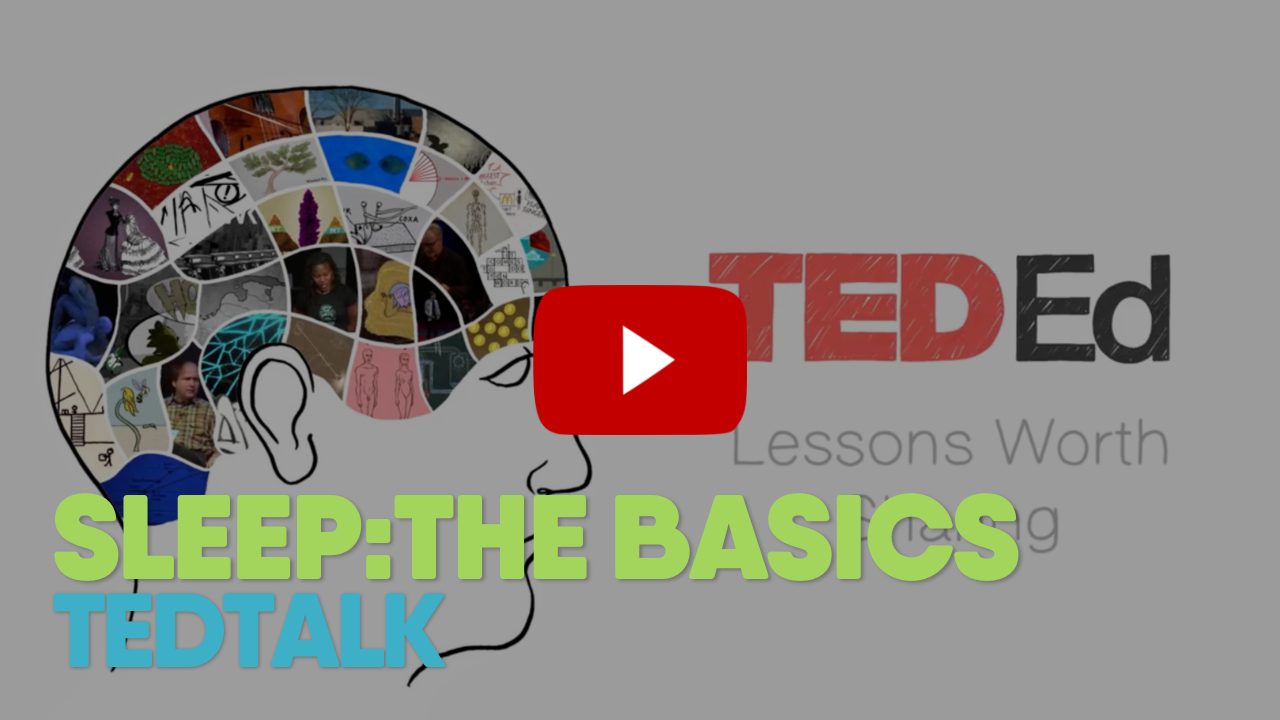SLEEP: THE BASICS
Why Is Sleep Important?
Sleep helps us to feel good, mentally and physically. A good night’s sleep:
- lets your body heal, repair, and fight sickness
- helps you to feel energized for the next day
- improves memory and focus
- helps to stabilize your mood and feel stronger mentally so you are able to solve problems and face challenges
- makes it easier to finish tasks like studying and working
- helps body systems like your metabolism and hormones to work better
- adds to your long-term health
Sleep gives your body time to recharge. This TedTalk explains what’s happening in our brain when we sleep and why it’s so important to our daily life:
So, how much sleep do I need?
The right amount of sleep is different for everyone. You may need up to 10 hours of sleep per night if you’re between the ages of 12-24. Since young people are still growing, it is really important to get enough sleep during this time. Some struggle with getting enough sleep because of changes in their body clock during puberty. That means they often feel tired later in the evening and wake up later in the morning than adults. Often young people have to wake up earlier than their body wants because of school start times. As a result, they lose a few hours of sleep every night.
How do I know if I’m getting enough sleep?
If you feel well-rested during the day and have the energy and focus for your daily activities, you are probably getting enough sleep. Other good signs are if you can fall asleep easily at night and don’t often wake up during the night.
It’s very common for people to struggle with getting enough sleep. Busy schedules, school, activities, and time with family and friends can all get in the way of sleep. Here are some signs that you might need a better night’s sleep or that your sleep schedule could use some fine-tuning are:
- It’s hard to get out of bed in the morning
- You fall asleep in class or at work
- You don’t go to bed at the same time every night
- You feel moody and irritable
- You have trouble concentrating or focusing on tasks, like schoolwork or studying
- You feel tired often and have low energy during the day
- You easily forget things
- You often go to bed later than you want or pull all-nighters for school or work
It is normal to feel overwhelmed when your sleep schedule needs adjusting, as it can start to affect other areas of your life.
What happens if I don’t get enough sleep?
Many of us don’t get enough sleep at night. School, social life, responsibilities, stress, health problems, etc. can get in the way of a good night’s sleep. But, too little sleep can affect us in many ways, including:
- feeling tired and worn down
- finding it harder to remember things – that can affect things like studying and work
- affecting your mood negatively – you might feel anxious, sad, or worried and you may be cranky and unpleasant to be around
- feeling hungry as your body looks for other ways to get energy
- being more likely to get sick
- not feeling like taking part in usual activities and responsibilities
What can I do if I’m struggling to get a good night’s sleep?
There are many things you can do to get your body and mind ready for a good night’s sleep.
- Explore the “What Next” options below to learn about different sleep troubles.
- Check out these How to Get a Better Sleep and Apps & Tools to help you get a good night’s sleep.
- If you think you need support from someone else, check out the Get Support section for a variety of options.
